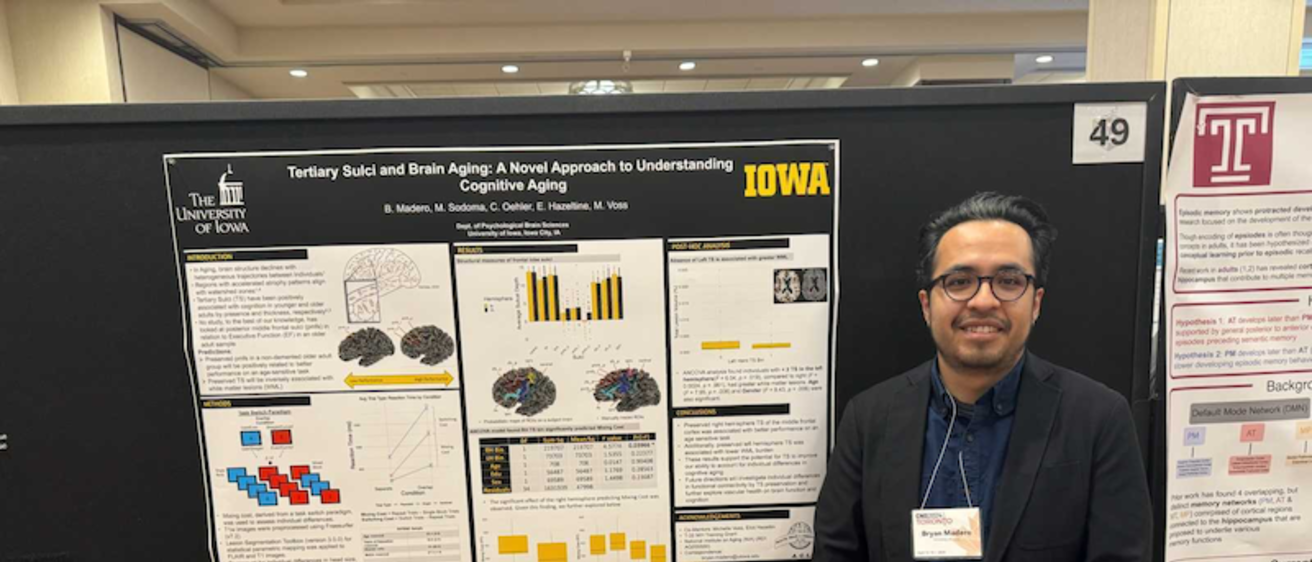Health, Brain, & Cognition Lab researcher and doctoral candidate Bryan Madero presented a poster on his dissertation topic, “Tertiary Sulci and Brain Aging: A Novel Approach to Cognitive Aging,” at the annual conference of the Cognitive Neuroscience Society, held April 13-16 in Toronto, Ontario, Canada. As one of over 900 researchers presenting during two-hour sessions, Bryan had the opportunity to share preliminary research on tertiary sulci, a potential important cortical biomarker associated with cognitive health, with others in his field.
“The goal was to present my research, network, meet other researchers and find an alignment for what is ostensibly going to be my career in research,” says Bryan. He found the conference a valuable opportunity to receive feedback on his dissertation subject, connect with labs that could offer a post-doctoral research position and talk with other scientists studying brain aging, but working with different modalities and methods.
“The core question of my research is to understand how the brain ages. Other researchers have similar goals but we’re approaching it in different ways. It was great to learn about other research and methods outside my bubble,” says Bryan.
“There are individual differences in cognition and brain structure as we age,” explains Bryan, who earned his B.A. in psychology from the University of California, Riverside, in 2019. “My research is investigating and identifying cortical biomarkers that can better disentangle that variation.”
Convex folds called gyri in the brain’s outer layer, the cortex, form crevices called sulci. Research at the HBC Lab shows a preliminary association between the preservation of sulci and an individual’s cognitive performance. “Holding on to those sulci as the brain ages seems to be important for cognition. Long-term, we want to see what factors such as lifestyle can better preserve these sulci,” says Bryan.
Among the networking opportunities at the conference was the chance to talk with Dr. Hillary Schwarb, who is doing animal research on structural elasticity of the brain, and Matt Sutterer, program director in Behavioral and Systems Neuroscience Branch at the National Institute on Aging, which funds many research projects on brain aging, including those at the HBC Lab. Bryan also met HBC Lab alumni Anna Thompson, a former research assistant who is now a PhD student studying cognitive and brain aging at University of Texas Dallas.
Besides building his network for opportunities down the road, Bryan enjoyed the opportunities to connect with former colleagues, hear from other experts in the field and attend workshops on topics like research funding and new experimental tools.
